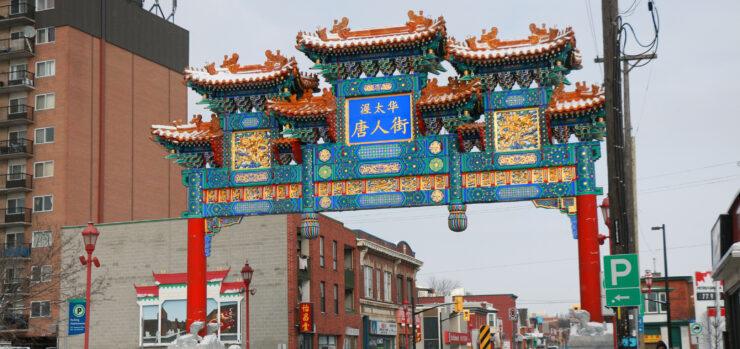The Fulcrum gives you tips on ringing in the year of the monkey
Although New Year’s celebrations may have ended weeks ago, the Lunar New Year has yet to come.
Lunar New Year, more commonly called Chinese New Year, will take place on Feb. 8 this year. As Ottawa gears up for the celebration, the Fulcrum spoke to Rae Xu, a fourth-year translation student at the University of Ottawa, to gather some tips on how to best ring in the new year in the Capital. Really, what better excuse is there to party on a Monday?
Where to celebrate
You don’t need to jump on a plane to the bustling streets of Shanghai in order to have an exciting Chinese New Year celebration. A ton of events are happening on and around campus that are easily accessible to students.
One of the biggest events Xu mentioned is the Chinese New Year gala, hosted by the Canadian Federation of Chinese Students, which will feature traditional performance and take place on Feb. 5 at the National Gallery of Canada.
For those who can’t make it out to the gala, there will be a Chinese New Year market hosted by the U of O’s Chinese Cultural and Academic Club on Feb. 8 from 11 a.m. to 4 p.m. in the UCU Agora. Xu says to look out for “student vendors who sell Chinese traditional handcrafts and food,” and a performance on the Agora stage.
Somerset Street Chinatown Business Improvement Area and the National Capital Commission will also be holding a Winterlude Lunar New Year Parade, beginning at 1 p.m. on Feb. 14 in Ottawa’s Chinatown between Preston Street and Bay Street on Somerset Street West.
What to eat
Due to China’s diverse cuisine, it may be hard to know where to start with traditional Chinese food for the celebration.
“Of course, the first thing is dumplings,” says Xu, who says that her culture believes it symbolizes money and fortune. Spring rolls should be number two on your list, which represent prosperity because “you wrap everything all together, which means you are in possession of a lot of things.”
For students looking for that perfect summer job, don’t forget rice cakes, which Xu says people eat for success, especially in the job market. Noodles symbolize longevity, which is represented in some ares of China by eating one long noodle rather than a bowl of smaller noodles.
Last, but certainly not least, are sweet rice balls. Ten to 15 small balls are eaten to symbolize a harmonized family.
What to wear
The colour red represents luck, and relates to the legend behind the holiday where red was used to scare away a monster on New Year’s Eve, so deck yourself out in red from head to toe, or opt for a simple red accessory to ring in the year in in style.
Who to celebrate with
Xu says that togetherness is the first thing that comes to her mind for the holiday, as in China people would often return to their hometowns to celebrate.
One of Xu’s favourite memories is celebrating Chinese New Year in Calgary with her family and friends, where they decorated the house similar to how it was done in China and woke up early to account for the time difference to watch the Chinese celebrations online.
“We all woke up really early, like at 4:00 a.m., and we started making dumplings together while watching the performance,” said Xu. “It was really cozy, and (good) family time together.”
So, whether you’re partying it up in Chinatown, or cuddling by the television set making dumplings with your family, Chinese New Year is a diverse and fun holiday that can be celebrated by all. Hóunián jíxiáng, or for those who don’t speak Mandarin, good luck for the Year of the Monkey!





